#chilean literature
Text
And when the sadness I hate comes / to knock at your door, / dile que yo te espero / and when loneliness wants you to change / the ring in which my name is written, / tell loneliness to talk with me, / that I had to go away / because I am a soldier, / and that there where I am, / under rain or under / fire, / amor mío, te espero.
-The Captain’s Verses (1952) by Pablo Neruda
La Carte En El Camino / Letter on the Road
#pablo neruda#the captain’s verses#love poems#1952#chilean literature#literature#poetry#quotes#words#my love I wait for you#los versos del capitán
15 notes
·
View notes
Text
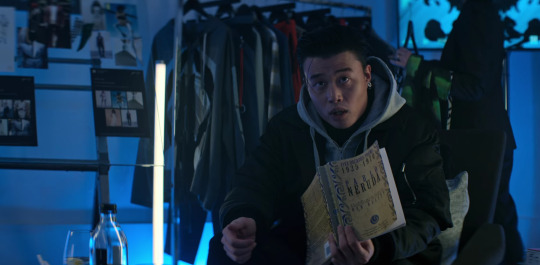
You S04E02 (Portrait of the Artist)
Book title: Five Decades: Poems 1925-1970 (1994) by Pablo Neruda
#aidan cheng#you#netflix you#you season 4#portrait of the artist#books in tv shows#five decades poems 1925 1970#pablo neruda#chilean literature
21 notes
·
View notes
Text
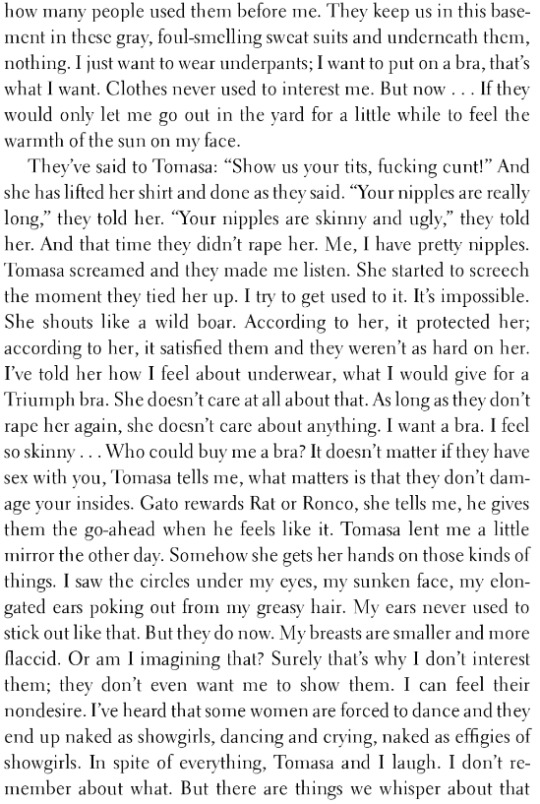
La Vida Doble p.35
Set in the darkest years of the Pinochet dictatorship, La Vida Doble is the story of Lorena, a leftist militant who arrives at a merciless turning point when every choice she confronts is impossible. Captured by agents of the Chilean repression, withstanding brutal torture to save her comrades, she must now either forsake the allegiances of motherhood or betray the political ideals to which she is deeply committed. While it is a novel it was written by the director of Chile's Museum of Memory and Human Rights and so based on extensive interviews of the real experiences of women prisoners.
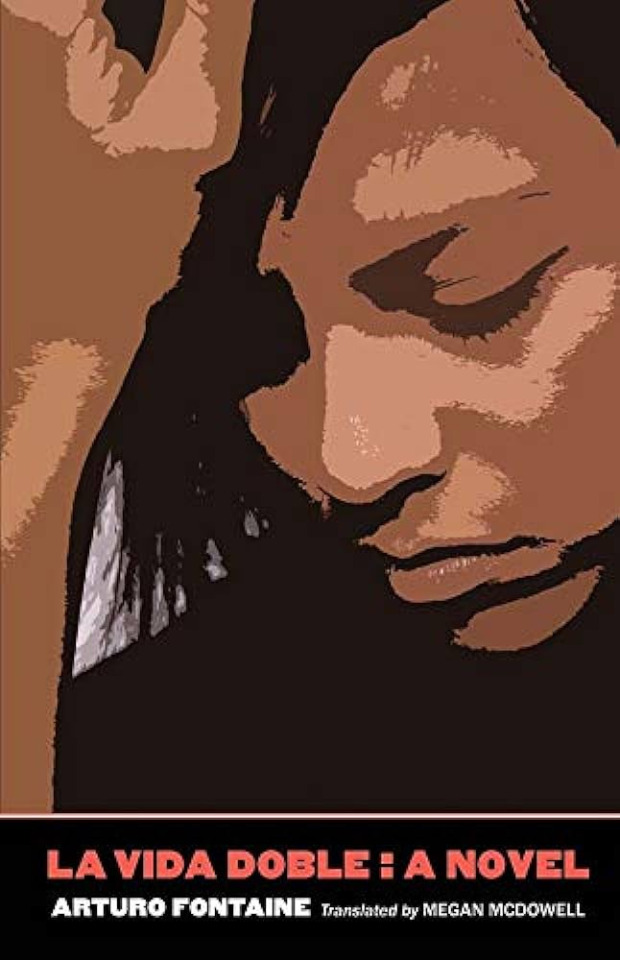
This short passage captures so many of the tactics of psychological warfare that the Junta used to adjust leftist women from their lives as revolutionaries to political prisoners to sexual slaves. Simple things like underwear became something women longed for. " I just want to wear underpants; I want to put on a bra, that’s what I want." As she says to her companera she would give anything for a Triumph bra. And Junta guards fully exploited women's lack of bras, and made crude insulting comments about their breasts. This 1974 ad for Triumph bras, gives some of its connotations as a Swiss luxury brand, and why the Junta might see it as a triumph that an ex-militant now longs for one. "I’ve told her how I feel about underwear, what I would give for a Triumph bra. She doesn’t care at all about that. As long as they don’t rape her again, she doesn’t care about anything. I want a bra. I feel so skinny . . . Who could buy me a bra?"
Most disturbing is the final lines about how "some women are forced to dance and they end up naked as showgirls, dancing and crying, naked as effigies of showgirls". It was the ultimate form of degradation to turn revolutionary enemies into dancing strippers for their Fascist worst enemies. In this circumstance where underwear became a precious commodity for women prisoners, for comfort and their basic feminine needs. Women became desperate for any bra and underpants at all, and so were willing to wear the sexy, skimpy stripper bra and tangas, the Junta guards mockingly provided. "They end up naked". They started off clothed, and it was the process of undressing, stripping like showgirls that Junta guards found so amusing on revolutionary women. Despite the macabre scene of women dancing and crying, the tears of traumatized victims won them no sympathy from guards. Turning once dangerous women into entertainment was their cruel way of showing off that they were no longer a threat to Pinochet.
The translator Megan McDowell, in an interview asked the author, about how in the Chilean context, Communism had a much more inspiring idealistic background than most North Americans are familiar with, and it is a tragic contrast with what these inspiring idealistic women were reduced to.
MMcD: A related question—in the U.S., words like “Socialism,” “Communism,” and “Revolution” have a different resonance than they do in Chile. Even for people on the left, “communism” is associated with experiences of dictatorship and repression, and doesn’t have romantic or idealistic associations that it does for Lorena, or that people in Chile are more aware of, even if they don’t share them; there is little history of socialist ideas or movements in the U.S. Is there anything in particular you think your North American readers should be aware of about Chile’s history as they read your book?
AF: Not much, really. Lorena makes things understood as they need to be understood; for example, what it means to her to belong to a radical revolutionary movement that tries to win a utopia through armed struggle, one that demands from her the complete sacrifice of her life. There have been so many movements like that, and there always will be. Whether the inspiration comes from Che Guevara, or the movement’s name is this or that, or whatever the specific content of the project for a new society, these are not essential matters. The willingness to sacrifice oneself for something that feels huge, almost impossible, is always a human possibility. The Islamic fundamentalists are painful reminders of this. Furthermore, the immediate enemy is brutal dictatorship. But the use of torture to get information out of terrorist groups is something that has happened in many countries, even in some democratic ones and not too long ago . . . I would like for the novel to show, in contrast to the film Zero Dark Thirty, the victim’s perspective, the way his or her identity as a person is gradually torn to shreds.
4 notes
·
View notes
Photo

This month, I’m featuring books in translation from Chile!
In these books: A woman is temporarily (or maybe permanently) blind and deals with dismissal and helplessness and a rising fury. An old queen past her best days of drag and splendor takes a break from cruising to help out the resistance because she has a crush on a young rebel leader. A young child accompanies her salesman father as he sells hardware supplies in Pinochet-era Chile.
There are so many good books on this list, including some new favorites. Check it out!
#books in translation#translated literature#chilean literature#wit month#my tender matador#seeing red#gabriela mistral
26 notes
·
View notes
Text

Luis Sepúlveda Calfucura was a Chilean writer and journalist. Was born on October 4, 1949.
“The only ones who fly are the one who dare to fly.”
Luis Sepúlveda
#luis sepúlveda#chilean literature#latin american literature#literary quotes#books#literature quotes#reading#books and reading#quotes#booklr#bookish#booksbooksbooks#prose#literature#writing
1 note
·
View note
Text
I think of the poets who died under torture, who died of AIDS, or overdosed, all those who believed in a Latin American paradise and died in a Latin American hell. I think of their works, which may, perhaps, show the Left a way out of the pit of shame and futility. I think of our useless pointy heads and the abominable death of Isaac Babel.
Roberto Bolaño, Dance Card
2 notes
·
View notes
Video
youtube
Sonnet XXVII: "Naked, you are simple as one of your hands," by Pablo Neruda
#youtube#Pablo Neruda. Neruda love poem#naked poetry#poetry video#surrealist poets#Chilean literature
2 notes
·
View notes
Photo
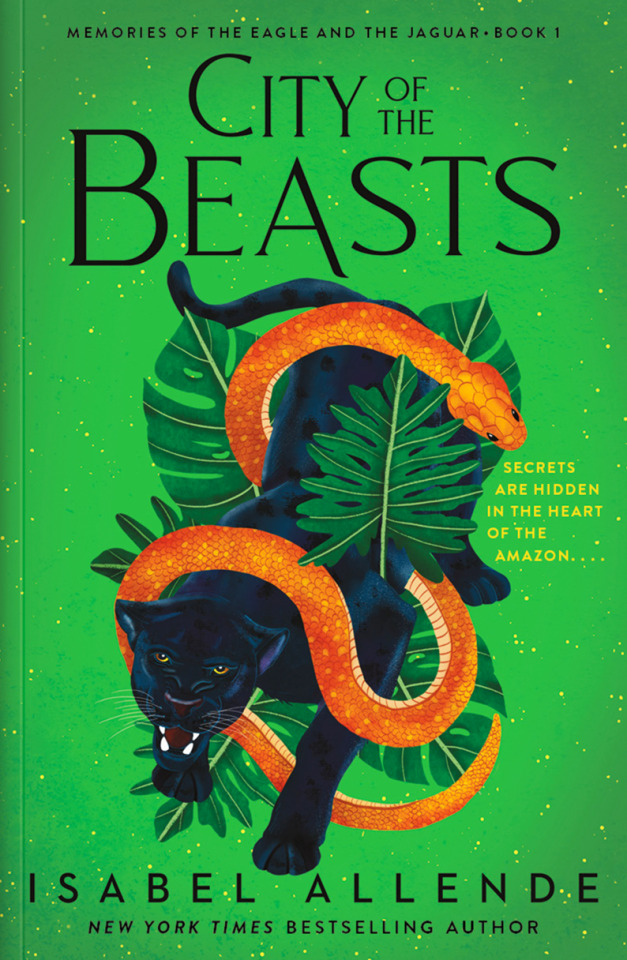
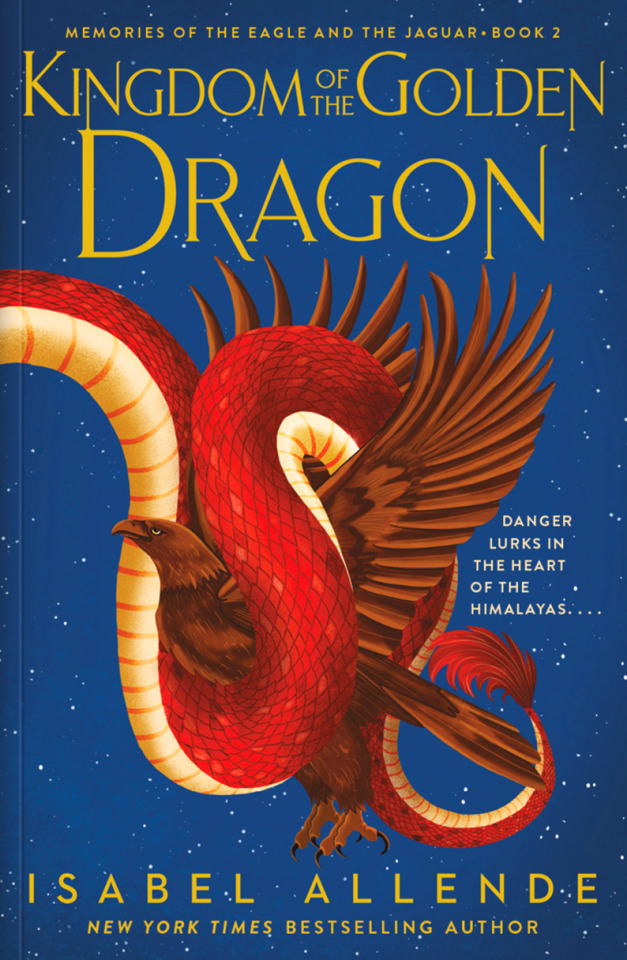

Micaela Alcaino’s illustrated book covers for Isabel Allende’s Memories of the Eagle and the Jaguar (City of the Beasts, Kingdom of the Golden Dragon, Forest of the Pygmies).
#chilean literature#book covers#isabel allende#micaela alcaino#memories of the eagle and jaguar#city of the beasts#kingdom of the golden dragon#forest of the pygmies
6 notes
·
View notes
Text
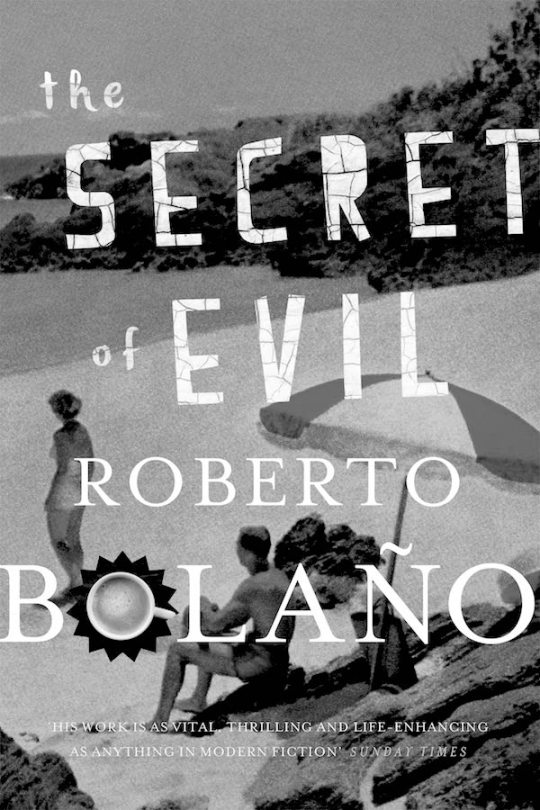
Currently Reading
Roberto Bolaño
THE SECRET OF EVIL
[El Secreto del Mal]
1 note
·
View note
Text
A Little Lumpen Novelita
📝 Author: Roberto Bolaño
⭐️ Rating: 2.5/5
🎧 Listening to: N/A
Thoughts:
This was my second book by Bolaño (first was Amulet). Sadly, I didn't enjoy A Little Lumpen Novelita as much. It's engaging, but for me, it's far from a fulfilling read.
Set in Rome, this is a story about two siblings who lose their parents in a fatal accident. To get by, the sister and the brother start working at a salon and a gym respectively. Everything seems bleak after being orphaned and then one day, the brother gets home two strangers. From there ensues a life full of 'crime' and intrigue.
The prose is generously sprinkled with foreboding which creates a sticky and lingering anticipation. According to me, this doesn't work in the story's favour because what actually unfolds doesn't live up to what is being constantly hinted at. Simply put, I'm disappointed that the 'crime' described in the book isn't twisted or dark enough to leave a lasting impression.
I believe this discrepancy is because of the powerful opening sentence:
“Now I am a mother and a married woman but not long ago I led a life of crime.”
So much relies on this one sentence. I wish softer language had been used here. In fact, all the characters in the book led a life of crime, except the protagonist. The protagonist is in a state of disillusionment and numbness and lets experiences happen to her instead of taking charge. This disconnect between her passive state of mind and how she remembers it (as a life of crime she actively chose) in retrospect didn't sit all that well with me.
Even though Bolaño successfully (obviously) creates the right mood with surreal dreams, fear, and thrill inducing elements, the weak plot and discrepancies described made the story read flat for me. But don't let this stop you from reading this book. I am certain that my desensitised mind is largely at play here.
#Chilean Literature#South American Literature#review#Roberto Bolaño#book recommendation#2019#crp#bookblr
0 notes
Text
Me parece bello que no se encuentren . Seguir simplemente sus vidas,tan distintas, hasta el presente y aproximarlas de a poco: dos trayectos paralelos que no llegan a juntarse. Pero esa novela debería escribirla alguien más. A mí me gustaría leerla. porque en ña novela que quiero escribir ellos se encuentran. Necesito que se encuentren
Alejando Zambra- formas de volver a casa
1 note
·
View note
Text

chilean poet, pedagogue, lesbian, rebel, gabriela mistral, who should be remembered not only as an female icon of chilean literature (as opposition of neruda, who was a rapist, abuser and dead beat father) but as a woman who loved another woman, despite being forced in a asexual box by men who couldn't accept such an incredible woman not being straight.
the woman who gained a nobel in literature, who wasn't appreciated by her own country because she was a woman.
I remember her, today and ever.
(gabriela mistral on the left, her partner doris dana on the right)
76 notes
·
View notes
Quote
The narrator writes to understand, although he knows there will be no revelations, that at most he will be able to shine a little light on the past. The initial image persistently accompanies the reading: a destroyed face, a lipless smile, a gaze without eyelids, suspended in semi-vigilance. To write is to record, with naturalistic precision, the light falling on that face. But this is not the story of the face: it is the story of the eye that looks at it.
Alejandro Zambra, on Jorge Baron Biza’s The Desert and Its Seed, from “Literature of the Children”, Not to Read (trans. Megan McDowell)
#q#lit#quotes#alejandro zambra#literature of the children#not to read#archive#to read#chilean lit#south american lit#m
287 notes
·
View notes
Text
QUEER NARRATIVES THAT AREN'T Y/A OR AMERICAN
Las malas (The bad ones) - Camila Sosa
La Virgen cabeza (The head Virgin) - Gabriela Cabezón Cámara
Tengo miedo torero (I'm afraid, bull fighter) -Pedro Lemebel
La llamada de Lauren (Lauren's Call) -Paloma Pedrero
Miss Tacuarembó - Dani Umpi
Loca (Crazy. Usually used for gay men and trans women peyoratively in latam) - César Cañedo
Grutesco- Yordan Rey
Bailarás sin tacones (You'll dance without heels) - Claudia Lama
Cantoras - Carolina de Robertis
Antes que anochezca (Before dusk) - Reinaldo Arenas
For all your "I want to read queer books that aren't coming of age stories" and "I want to read queer books that are not from/in the states" necessities. These are all books from Latam so if you have any from others parts of the world, feel free to add them! Or even if they're from latam!
#rice rambles#queer literature#queer books#lgbtq books#lgbtq literature#Honestly anything you can find from Pedro Lemebel is amazing#And I'm becoming such a fan of Camila Sosa#I could add Mistral in there but she didn't really write *about* being queer#sincerely; a chilean literature student that really really really wants more queer titles in more languages I am BEGGING
42 notes
·
View notes
Photo
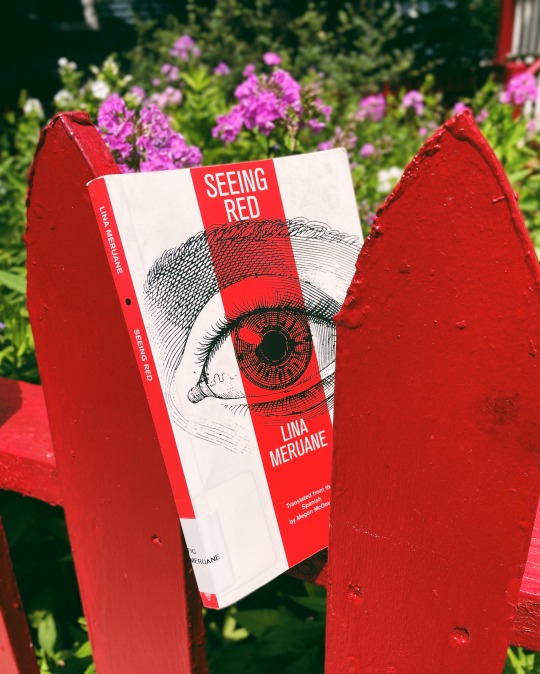
Seeing Red by Lina Meruane, translated by Megan McDowell, was an unexpected hit straight to the stomach. It is a powerful short novel about a woman who loses her sight after the blood vessels in her eyes burst. She’s been sick for a long time, forced to live in a constant state of dread and care, and one day at a party, it happens. The blood floods her eyes, and she quickly becomes completely dependent on her relatively new boyfriend, and then also on her doctor parents on her brief visit home to Chile.
The book is based in Meruane’s own real experiences and health issues. It’s dark and perfectly encapsulates the horror of being dependent on people who aren’t taking you seriously, of medical dismissal, of friends who don’t know what to do and want to flee, of overbearing family, of people who think they know what’s best for you. The protagonist is mired in the desperation of wanting someone to recognize how dire her situation is, unnerved by the unshakeable-ness of her doctor who never remembers her name, annoyed by her boyfriend’s complaints and avoidance. She finds herself unraveling under the weight of blindness, of helplessness, of dismissal, becoming angry, becoming obsessed with other people’s eyes, being changed by the harrowing fear and complete loss of control.
Anyone who has had experience with medical fear and dismissal will recognize the paralyzing panic and rushes of anger that fill the protagonist up as she tries to make people understand the gravity of what’s happening to her, as she confronts a new and very uncertain future.
Content warnings for r-slur, ableism, medical dismissal and trauma, chronic illness, fatphobia, suicidal ideation, transphobia/misgendering.
#seeing red#lina meruane#books in translation#women in translation#chilean literature#chronic illness#chronic illness reads#my book reviews
18 notes
·
View notes
Text
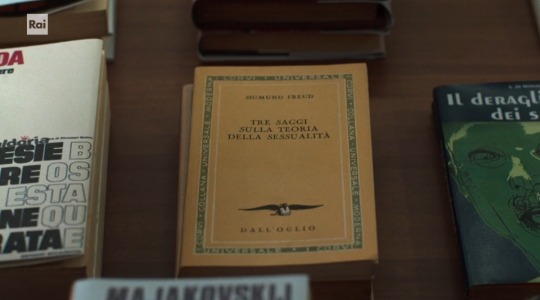
L'amica geniale S03E01 (Sconcezze)
Book title
20 poesie d'amore e una canzone disperata (Veinte poemas de amor y una canción desesperada in Spanish; 1924) by Pablo Neruda
Tre saggi sulla teoria della sessualità (Drei Abhandlungen zur Sexualtheorie in German; 1905) by Sigmund Freud
#chilean poetry#l'amica geniale#l'amica geniale season 3#sconcezze#my brilliant friend#my brilliant friend season 3#books in tv shows#20 poesie d'amore e una canzone disperata#pablo neruda#sigmund freud#Veinte poemas de amor y una canción desesperada#tre saggi sulla teoria della sessualità#Drei Abhandlungen zur Sexualtheorie#austrian literature
7 notes
·
View notes